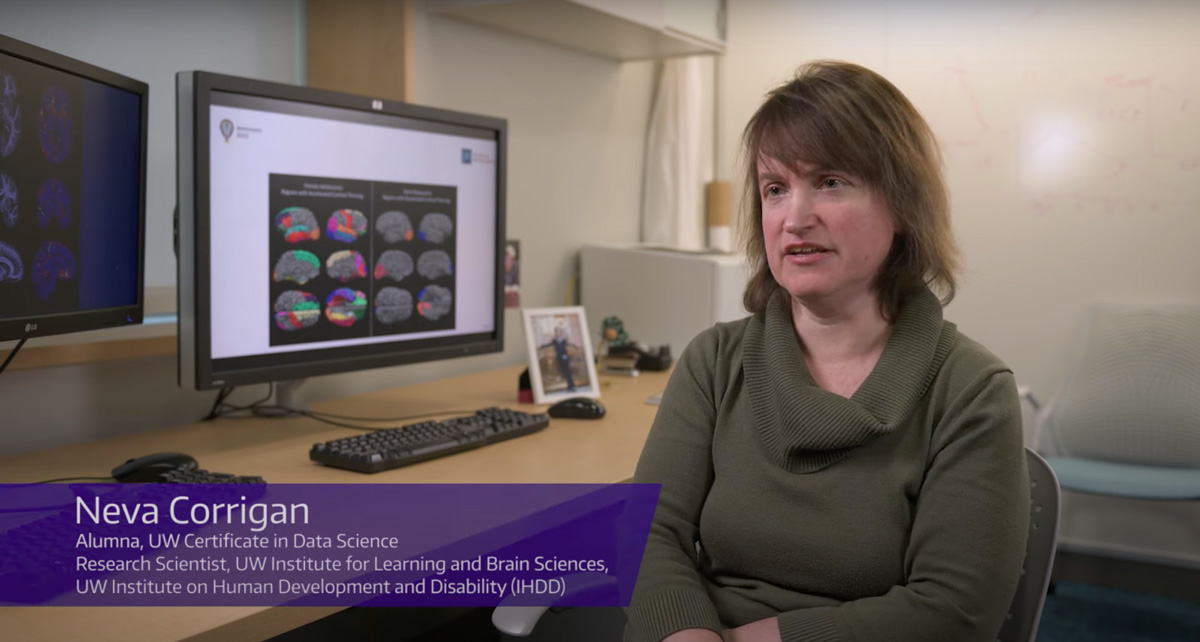Home / Stories /

For over two decades, Dr. Neva Corrigan has been a research scientist at the University of Washington, working with the Institute for Learning and Brain Sciences and the Institute on Human Development and Disability. In her role, she’s dealt with vast amounts of MRI data, often reaching hundreds of gigabytes per scan. Traditionally, she manually searched for patterns within this rich dataset. Recognizing the need to harness machine learning’s potential for analyzing such extensive data, Dr. Corrigan enrolled in the University of Washington Certificate in Data Science course, an online format that offered flexibility with one three-hour class per week.
The course not only provided a convenient structure but also introduced Dr. Corrigan to a diverse group of students. Contrary to expectations, the remote class facilitated strong interpersonal interactions, leading to the formation of a study group with bright women in the field. The surprising impact of the program unfolded as she applied machine learning techniques to investigate the effects of COVID lockdowns on adolescent brain structure. Collaborating with an expert on campus, Dr. Corrigan discovered novel findings presented at the Society for Neuroscience Conference—revealing that the lockdown had differential impacts on brain structure between genders, particularly more pronounced in females.
Link to Dr. Neva Corrigan’s bio
Link to the Institute for Learning & Brain Sciences website


